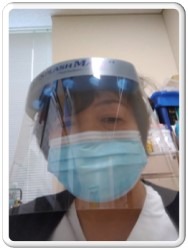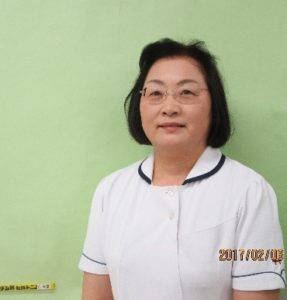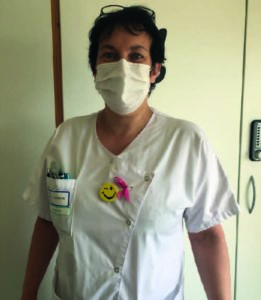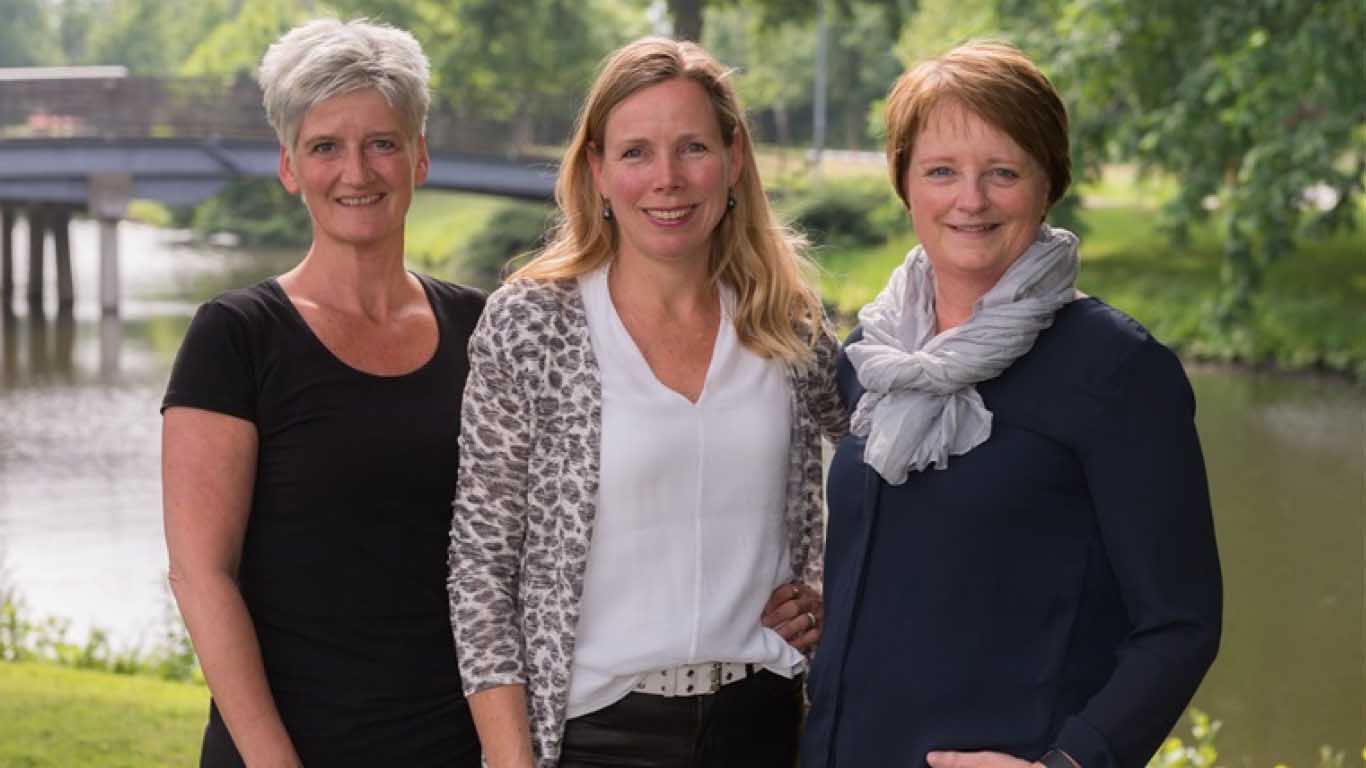Stoma nurses around the world share their personal stories with us about how they are being impacted and coping with the Covid-19 pandemic.
Thank you to all our nurses who have shared their personal story with us.
A message from a WOCN with 20 years career, Japan
We share the experience of Japan and our hospital with stoma care nurses all over the world.
At our facility, we reduced the basic routine follow-up of stoma outpatients during the period between the government’s declaration of an emergency and the subsidence of community-acquired infections. For those who have no problems with stoma care, we responded by telephone consultation or postponed hospital visit until the infection subsided, and direct care was reduced by 80%.
When going out and contacting many people, ostomates are concerned about infection before going to hospital, fear of infection in hospital, and infection from asymptomatic outpatients and medical staff.
In particular, it is necessary to take measures in consideration of the fact that excrement produces aerosols that are considered to be at risk of infection, and that stoma outpatient department is at risk.
When dealing with excrement under the COVID-19 regulations in the hospital, PPE is used appropriately according to the prevalence of community-acquired infection. There were restrictions on the use of masks and gowns during the first wave, but I took care while anticipating that sufficient measures could not be taken in the future.
In Japan, Japanese Society of Stoma and Continence Rehabilitation (JSSCR) announced early the guideline for stoma care against the spread of COVID-19. This has been a very helpful guide for us in our daily clinical care with anxiety.
(Http://www.jsscr.jp/img/koronataisakushishinn.pdf)
COVID-19 is a catastrophe that exceeds the natural disasters that Japan often experiences. Stoma care is care in a closed room environment that deals with the excretion as a potential source of aerosols. You must understand and care for the situation and risks.
COVID-19 will change the way the stoma care outpatient works.
However, what is important is not to do it because there is a risk of infection, but to think about the timing of the infection situation and how to deal with it.
I would like to continue to evolve by providing care that allows ostomates to live with peace of mind and constantly devising ways and methods for medical staff to provide safe care.

Miki Masada, Japan
I am working for the hospital located in Kagawa in Shikoku Island in Japan designated for infectious diseases.
Thank you to all the medical practitioners around the world who are working hard every day to combat COVID-19. In my hospital, the ward that had been set up for treatment of Covid-19 patients has now closed and returned to a general ward just a few days ago. There were 28 infections and 0 deaths in our area. It may have been reduced because of the countryside area where we are located, in an island country.
Both doctors and nurses have worked hard for patients. We WOCNs opened the windows of the outpatient office as shown in the photo and attached a shield to protect themselves from infection while taking care of the patient to minimize patient anxiety. Even in such a situation, one day a patient gave me a present. It was some handmade masks, made by my patient who is currently going through cancer treatment. The masks have cute designs and even a lace ‘celebrity’ one. What a lovely gesture! It was a moment of pride and joy to be a nurse.
The infection is not over, but let’s overcome this difficult time! A happier life is waiting for you. We are looking forward to sharing this information with friends around the world!

Shinobu, Japan
Invisible COVID-19 has put the people of the world in fear and continues to bother people secretly and repeatedly. At Specialist Nurse Outpatients Consultation Dept for Stoma / Wounds / Incontinence, I am working with patients at the limit of in-contact care by carrying out more careful infection prevention than the usual hand-washing to avoid 3Cs1), Closed spaces with poor ventilation, Crowded places with many people nearby and Close-contact setting such as close-range conversations.
Some patients change or cancel appointments due to concern about infection. Reduced number of patients visit with appropriate protective measures. We are also providing telephone consultations and instruction. We are aware of the importance of practising daily temperature measurements, enforced gargling after returning home and during work and information collection to avoid risks. Triage is regarded as a shared task among all staff of our hospital. We are wiping the beds, doorknobs, chairs, etc. every time a person leaves to prepare for the next patient.
People are cautious and are slowly moving forward to end COVID-19 infection along with the rest of the world. As well as taking a fighting stance, everyone, including myself, is taking good care of our own health. Japan-One-Team is battling adhering to handwashing, wearing of infection preventing masks and distancing from people avoiding 3 Cs.
I think that we are now at the crucial time. I can only thank the medical staff who are united in providing treatment and care on site. So, we have to refrain from unnecessary and non-urgent going-out and we make one wish to end the historical medical crisis in the middle of this disaster.
*The below is a moment when I felt that an even greater sense of accomplishment than normal. I cared for a coronavirus patient who had been managed with enteral nutrition and experienced skin trouble after continued diarrhea. The skin condition was improved after usage of the powder and paste skin protectors I applied. I could make use of knowledge/technique as a certified nurse!
1)Note: “Avoiding 3 Cs” is a catchphrase for prevention of Covid-19 infections spoken in Japan

Pascale, France
I have been practising at Groupe Hospitalier du Havre Jacques Monod since 2003 as a stoma nurse / ET nurse. The health crisis due to this coronavirus has forced the hospital to think about a new institutional organisation. All surgical operations have been cut back which therefore has an impact on stoma-care services.
For my part, I have continued to carry out my work in the Department of General Surgery, as we have had some new stoma patients that were operated as emergency procedures. All outpatient consultations in stomacare have been cancelled. Follow up of stoma patients is necessary and is carried out by phone and by digital means.
During the initial stages of the confinement, I stayed at my home. I became more and more anxious as I listened to the media, informing the population about the danger of the virus. I became so worried about passing it on to my family and worried about returning to work. When I did go back, full of apprehension, I realised that everything had been put in place to work together with colleagues in a serene
environment.
It is important to follow the recommended measures to avoid the spreading of the virus.
 Marjolein Visser, Stoma- and woundcarenurse, St. Jansdal Hospital Harderwijk, The Netherlands
Marjolein Visser, Stoma- and woundcarenurse, St. Jansdal Hospital Harderwijk, The Netherlands
The impact of Covid-19 is that it’s a quiet outpatient clinic at the moment, in a desolated hospital: we work alone, eat alone, have meetings by phone and miss close contact with colleagues and patients. Only a lot of calls and email contact with patients. It needs a lot of new skills and energy in this practical field, to explain the situation to the patient. The heat of the masks is hard and not knowing which colleague is behind the mask is very intimidating.
Personally I wonder how we have to adjust our work to the 1,5 mtr society and when will life be “normal” again?
What did we learn from this situation? Is there a possibility we will increase digital contact with patients – via video-call to inform the patients and use of instruction movies will increase? Perhaps there can be more E-health solutions for ostomy’s, their caregivers and professionals.
Olga Ostendorf Ruymbeke, Urology, Continence & Stoma nurseTWB, Homecare Roosendaal, The Netherlands
At the moment, the focus inside and outside the organisation is about COVID-19. It’s almost like no other care is provided. It is noticeable that colleagues contact me less frequently if there are problems in for example ostomy care. The number of requests for my support are decreasing. That’s a pity for ostomates who experience problems.
A nice extra however, is that I can be part of the Viral team. The Viral team gives care to clients who are suspected of COVID-19 contamination or have tested positive for COVID-19. The care is given at their homes, in their own familiar environment.
I’m glad that I can contribute to care for COVID-19 contaminated clients. But at the same time, I’m worried about clients with a request for support that will not reach me.
Airis Fakirmohamed, Ostomy nurse Beatrix Hospital, Gorinchem, The Netherlands
At the Beatrix Hospital, I work as an ostomy nurse in the outpatient clinic as well as a general nurse on the surgical ward. With COVID-19, this ward became a specific location for Corona patients. In March, I worked all my hours on this Corona ward.
Although I was afraid (I have a 12 year old daughter, will she be safe enough? Will I contaminate the people I love?), I feel I had to do this. It’s my job and these patients need us. Working on the Corona ward is hard. It’s a nasty virus and it’s unpredictable in it’s development. I’ve seen more people die than I’m used to and protective clothing is really hard to work in. As a result of doing this work, I had to keep social distance with my daughter and family to protect them. An enormous sacrifice!
Now I’m back again in ostomy care. My contact with ostomates is via phone or mail as much as possible. Most ostomates are high risk patients and it’s important that they don’t visit the hospital to avoid risk of contamination. Hopefully this will all change for the better soon.
Nadège, France
When we enter the patient’s room we wear a mask, glasses, hygiene cap, overalls and apron. This uniform is very hot. We change hygiene cap and apron between each room. We take time to change, to wash our hands and we use a lot of equipment.
My surgery unit became a Covid unit. We have 24 patients in my unit. My work is different because consultations are forbidden. I follow up patients by phone and by email. If they need some advice, they contact me. They send me a photo of their stoma or wound and I give them advice. I send them a prescription by email or fax.
I also help my colleagues in the Covid unit too. I’m in charge of the phone because the patients families call a lot as visiting is prohibited. I disinfect doors, computers and phones a few times a day. I put away the medicine and the equipment.
Best regards and stay safe.
Kitty, The Netherlands
The work is different, there are some adjustments, but we are still trying
to help our patients, even with the ‘Corona clothes’. For instructions we
are using a lot of Facetime or Skype when the family is not allowed to be
with the patient.
I wish everyone good luck, good health and keep smiling.
Alison, UK
“At the beginning of March University Hospital Birmingham was preparing for the Virus, all visitors were stopped and clinics were all held over the telephone, obviously this involved giving cancer diagnosis and so telephone follow up for the patients from the Colorectal Nurses was paramount. Walking into the Hospital was slightly eerie as there was no one other than staff in the corridors and on the wards. One of the wards has an 8 bedded High dependency unit at the very end as a separate ward (ITU is a separate ward completely). Over a matter of a week the general ward was transformed into an ITU with ventilators at every bed allowing 28 more ventilators.
In mid-march I was as usual working on the wards teaching patients how to care for their stomas so we could get them home and free up beds. All cancer surgery was postponed to free up beds too. Then I became unwell, high temperature, cough, sore throat and generally feeling the worst I have ever felt in my life. The first two weeks are all a bit of a blur I felt so unwell. I have a colleague that helps me in the
community and she was following up patients that had been discharged home over the telephone.
Now fully recovered Alison is assessing options for the most appropriate way to return to work.
Karen, Switzerland
Routine check-ups for stoma patients have been cancelled. I have been giving advice over the phone and some patients have sent me photos of their stomas. Otherwise I am doing more wound care, even routine dressings, to help my colleagues in the different health centres.
Margarete – Germany
Caring for patients even during this time of COVID- We work together and I do what I can! My part is to assist in ostomy and wound care in various departments.
Since the start of COVID-19 I have taken over the shifts of an older colleague, who is considered at risk, and so have not been working in my usual role as a WOCN. As lots of operations have been cancelled, the workload in stoma therapy has also decreased a little.
I’m now working in the area of visceral surgery after being away from this work for many years.
Thank you
A sincere thank-you to all of the nurses who took the time to share their stories with us and to all the healthcare professionals around the world who continue to work tirelessly during these unprecedented times.

 US
US 
